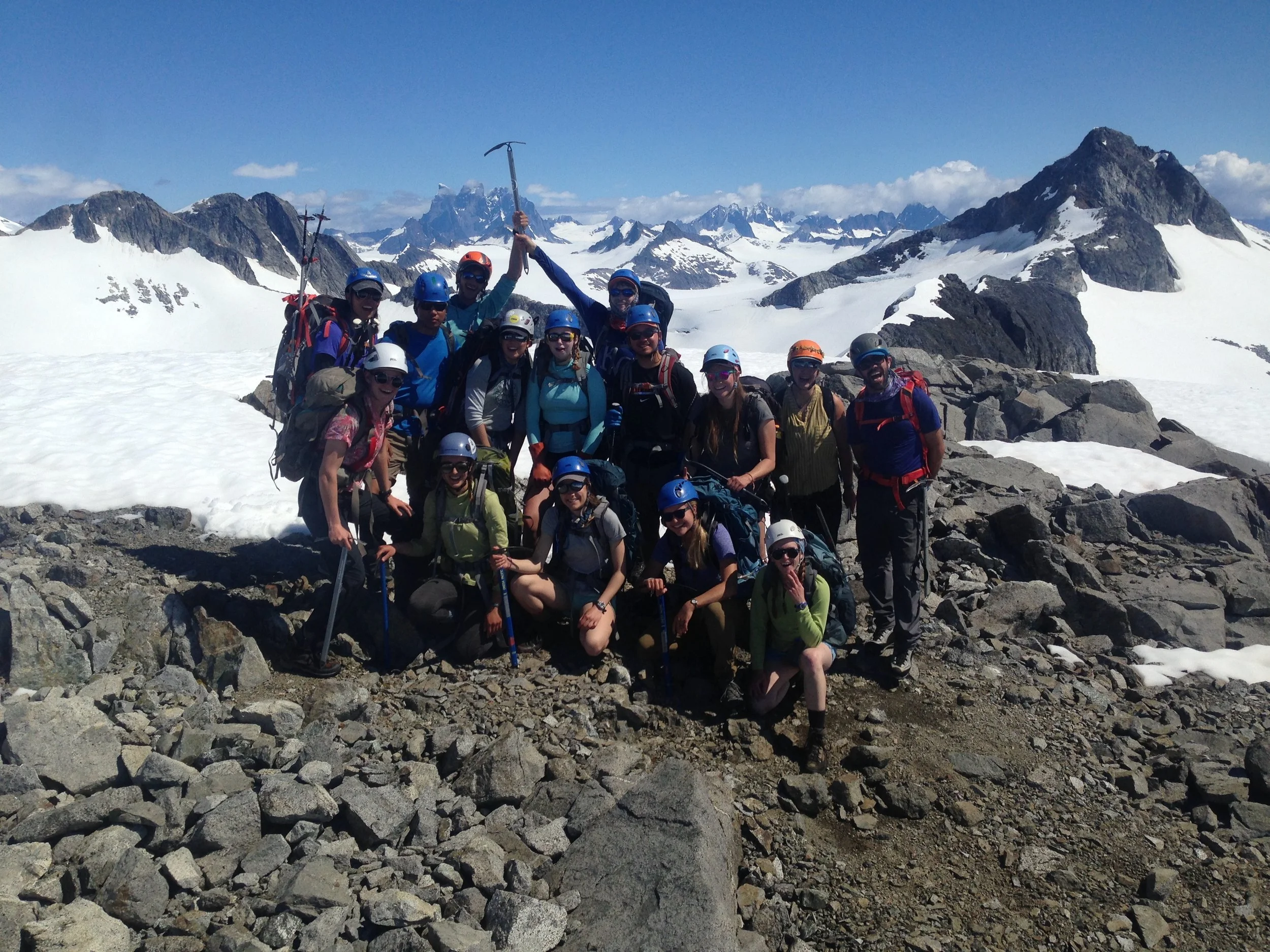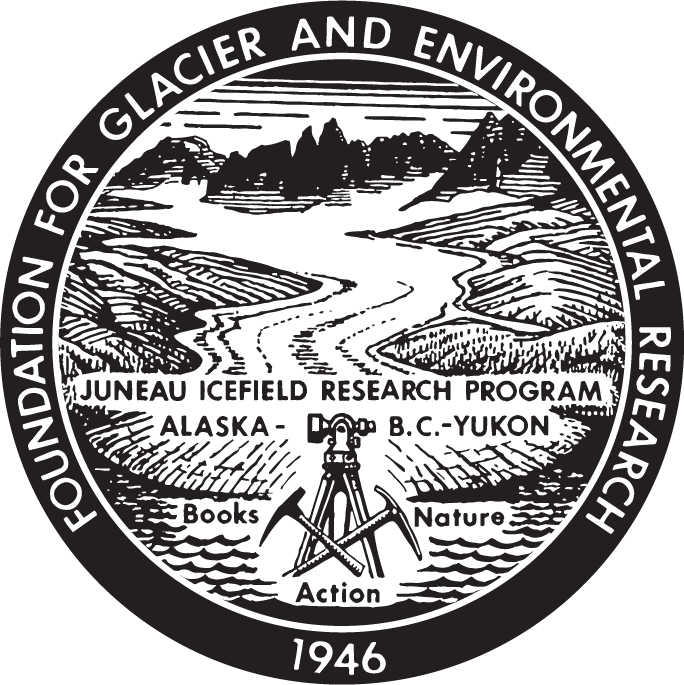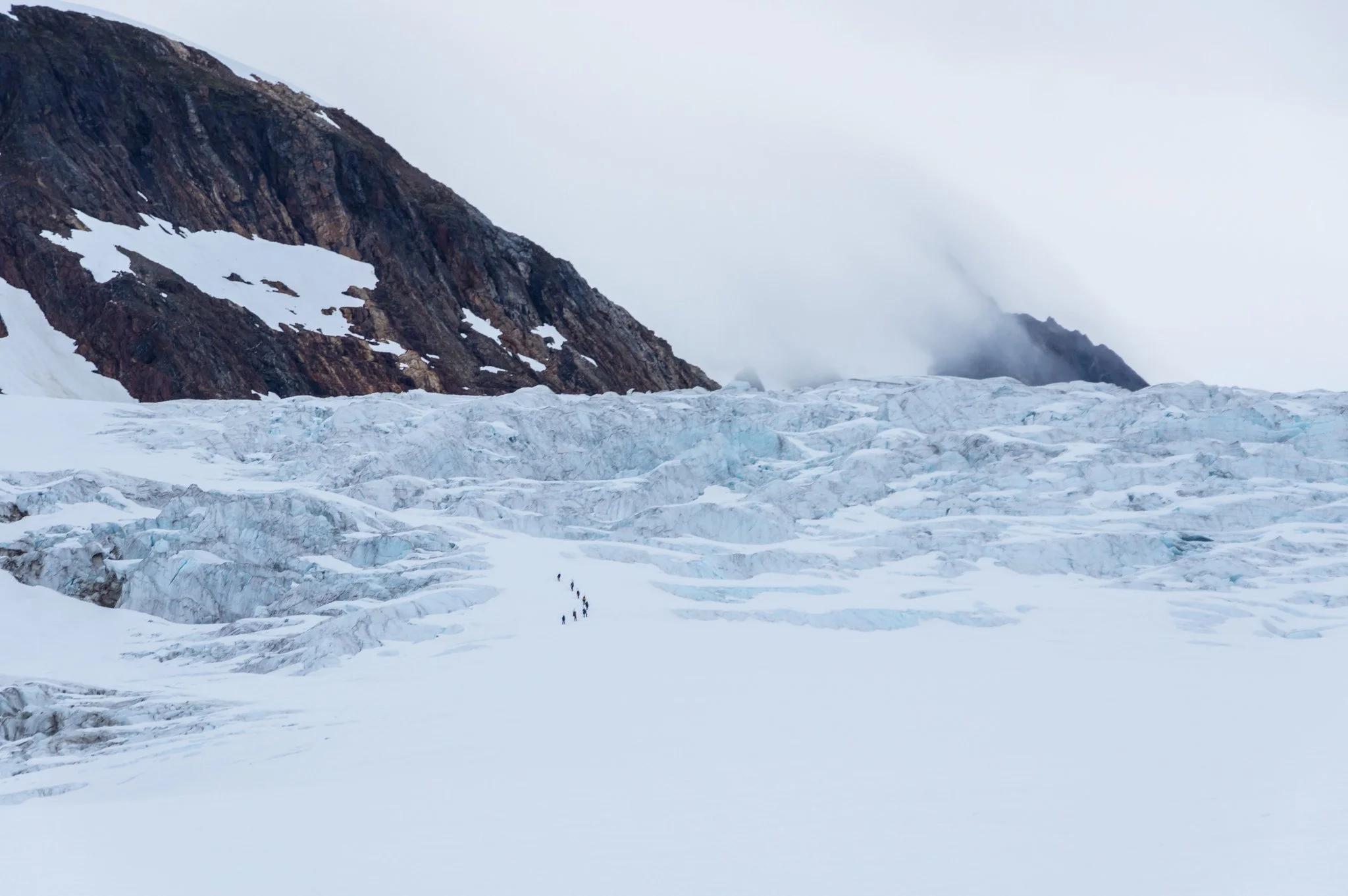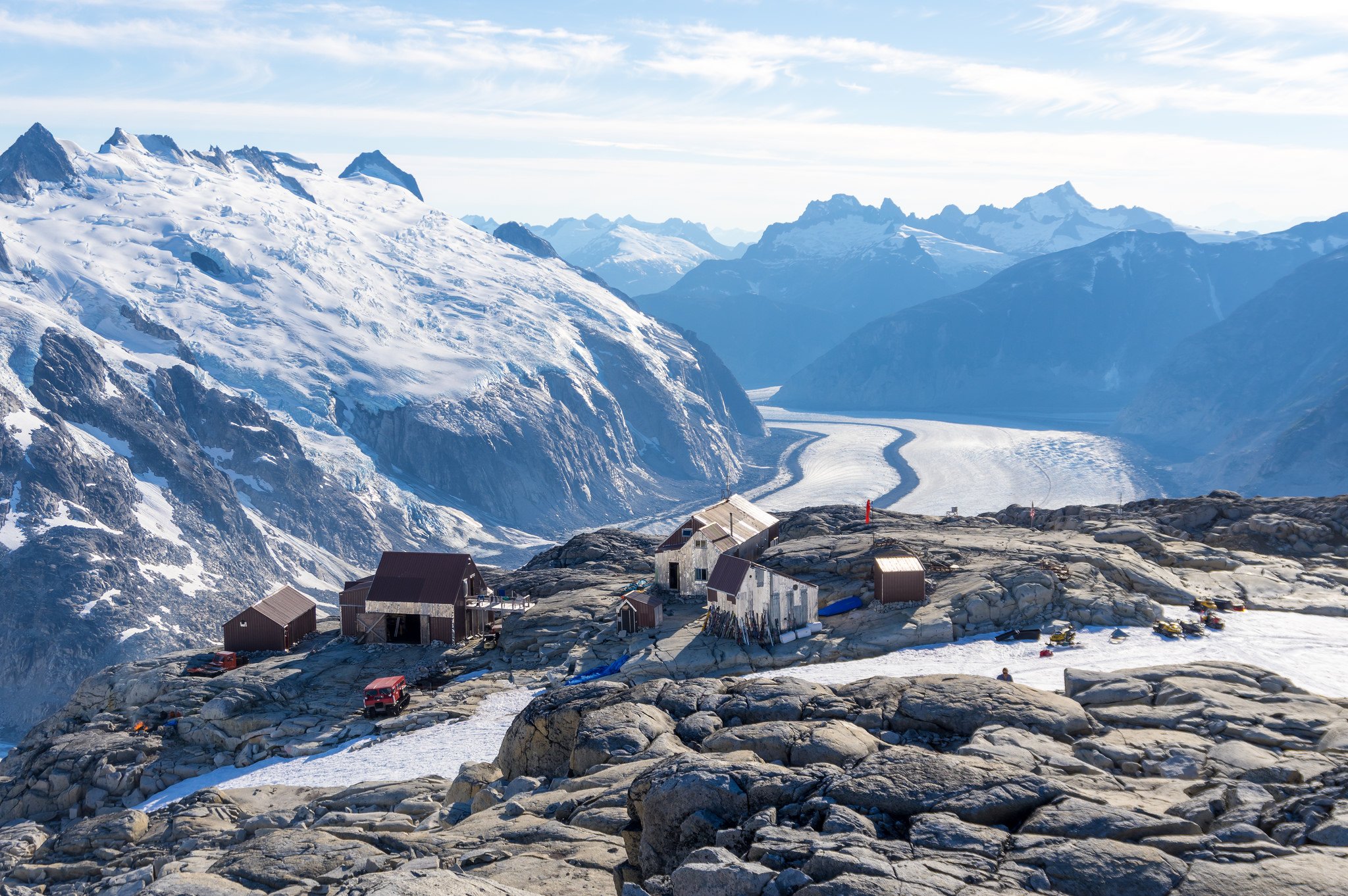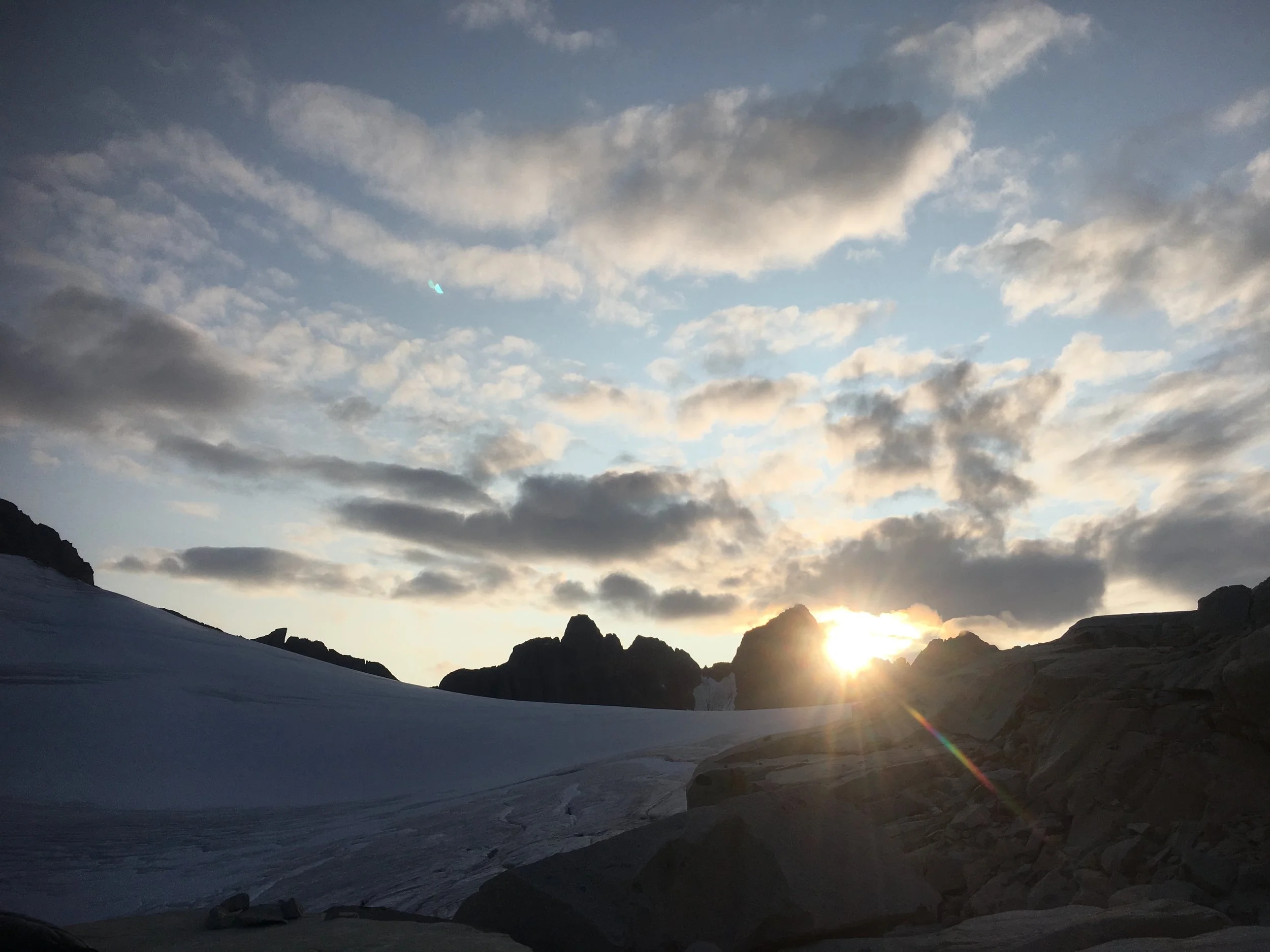
Mission
Our Mission
We teach, train, and inspire the scientific leaders of tomorrow.
The Juneau Icefield Research Program's longstanding mission is to provide an unrivaled educational and expeditionary experience in the stunning Coast Mountains of Alaska and British Columbia. We give students a wide range of training in Earth sciences, wilderness survival, and mountaineering skills, and provide unique opportunities for team building and personal growth. Additionally, we support scientists conducting critical research and developing tools for glacial and Arctic environments.
Dual Purpose: Education and Research Support
The Juneau Icefield Research Program centers around educational field courses, but research is an equally important part of the organization’s mission and history.
We provide logistic support for research teams from around the world. Given the relative accessibility of the Icefield to the city of Juneau, the area has become a polar proving ground for technology and research that goes on to other icy environments such as Greenland, Antarctica, and even the icy planets and moons of our galaxy.
Participants in field courses are active partners with these leading scientists and their research teams, pursuing groundbreaking research in glaciology, polar engineering, climate science, and other fields. We stimulate cross-disciplinary collaboration among students from the United States and around the world with scientists engaged in all aspects of Earth systems science.
The field-based curriculum and stunning mountain environment of the Juneau Icefield Research Program have inspired students for over seventy-five years, leading students to careers in science, education, medicine, the arts, and remote exploration.
“JIRP provides a unique opportunity for students to gain both practical and theoretical exposure to a variety of different aspects of the Earth Sciences. It is the best – and grandest – Earth Sciences classroom in the world.”
- Dr. Benjamin Santer, JIRP Faculty; Investigator of Climate Change, Lawrence Livermore National Labs; Member U.S. National Academy of Sciences
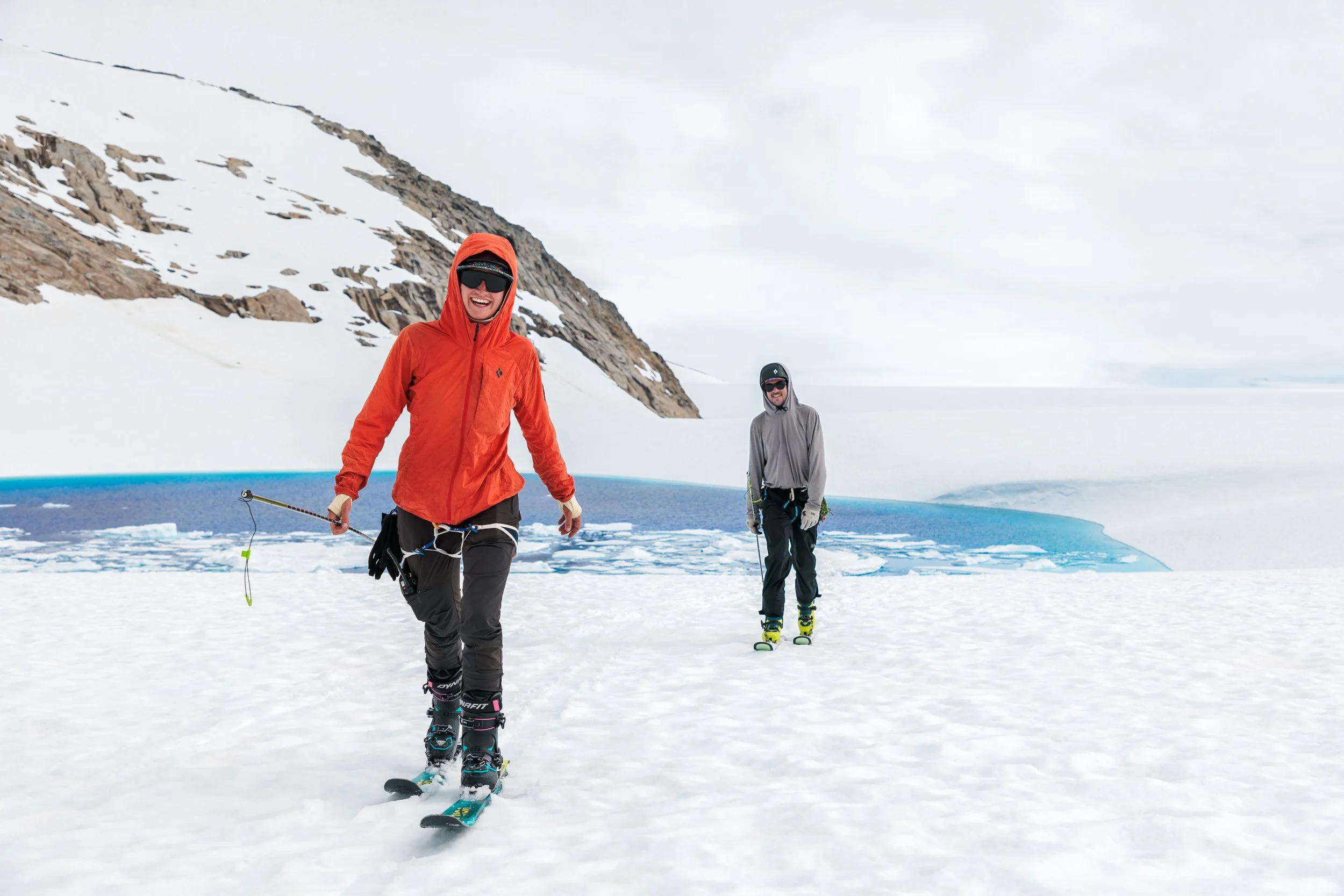
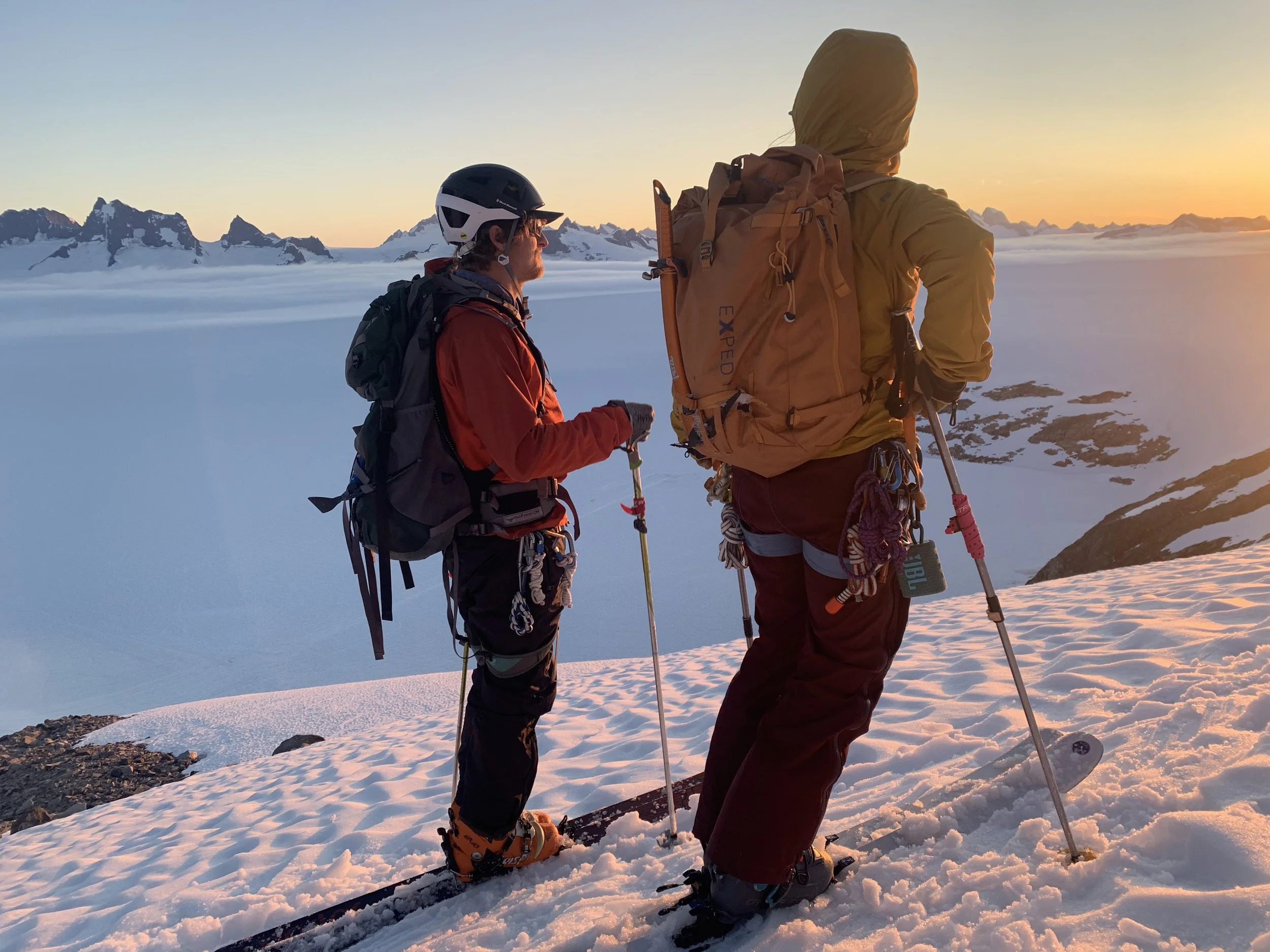
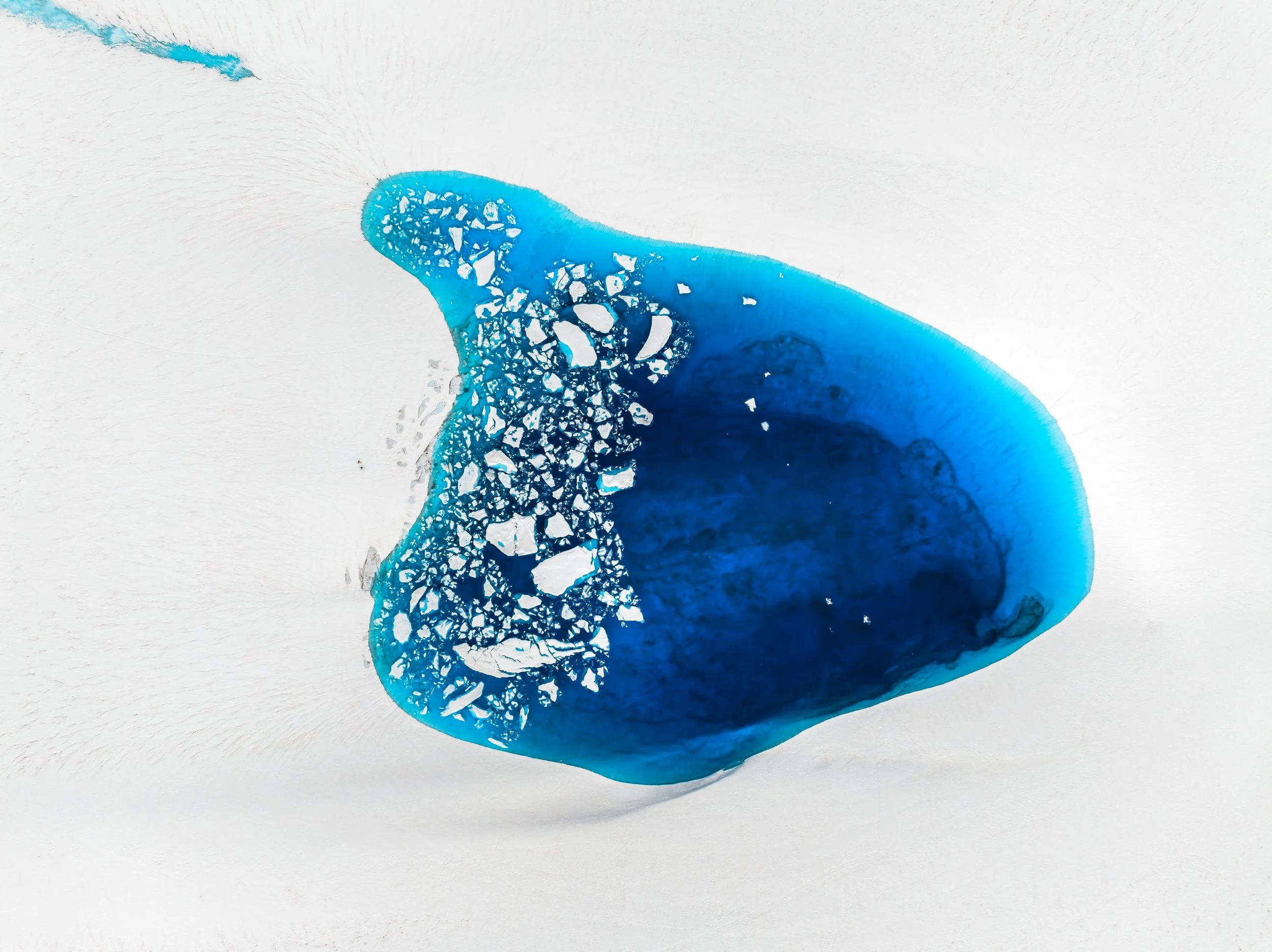
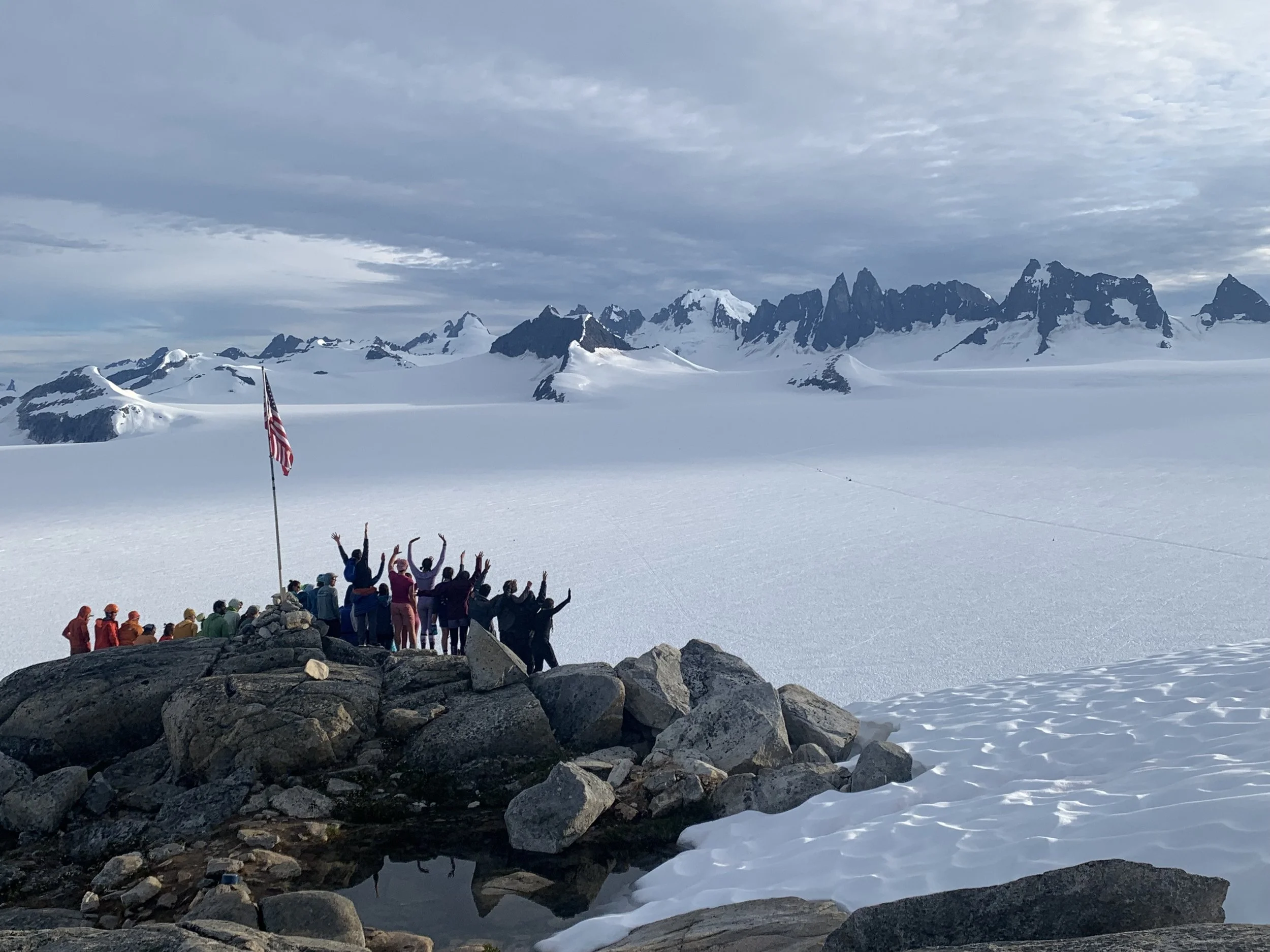
Our Classroom
THE JUNEAU ICEFIELD
Our classroom is the Juneau Icefield, situated in the Coast Mountains of the Tongass National Forest and Atlin/Áa Tlein Téix’i Provincial Park. This land is also known as Lingít Aaní, and is the ancestral and current home of Tlingit peoples on both sides of the Coast Mountains. The Icefield serves as educator, inspiration, and host for both research expeditions and field courses.
The Juneau Icefield covers a wilderness region of 5,000 square miles (an area the size of Rhode Island), about half of which is covered by glacial ice and includes some 50 outlet glaciers. The Icefield straddles the Coast Mountains and exists because of the predominantly cool, wet maritime climate.
FACILITIES
We maintain 11 permanent field stations and a dozen temporary camps on the Juneau Icefield and peripheral areas. Our main research stations are groups of permanent buildings in strategic locations across the Icefield. We also maintain a range of camping equipment to set up temporary snow camps.
We maintain communications with Juneau, Atlin, and between camps with VHF radio and satellite phones. Most participants travel by foot or by ski, but we use snow machines and helicopters for logistic support where necessary.
JIRP Accomplishments
-
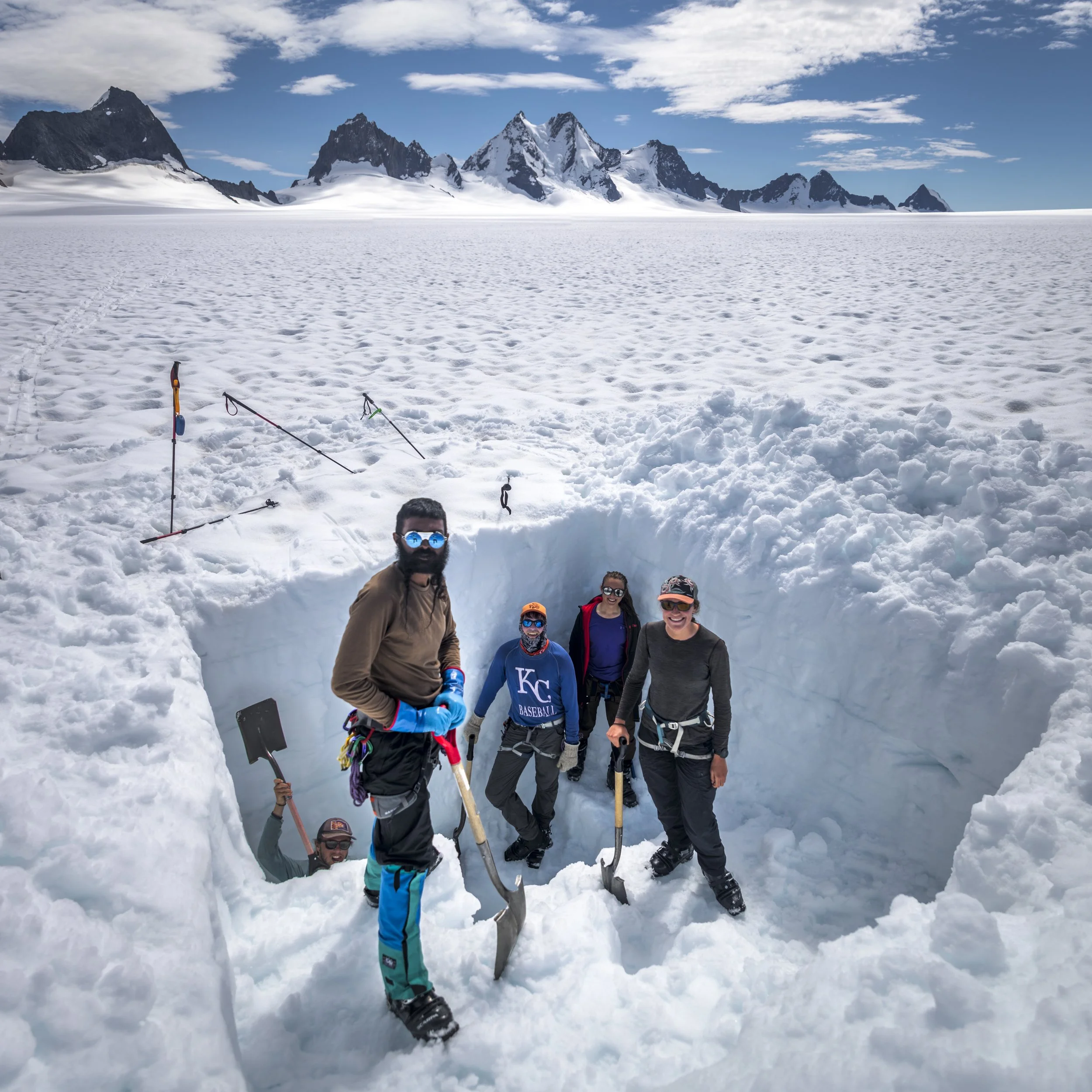
For over 75 years, The Juneau Icefield Research Program has maintained the longest-running study of any glacier in the Western Hemisphere.
Such comprehensive and continuous studies are rare, yet they are crucial to our understanding of past and present climate change.
-

Over 1,000 reports and publications have come from research conducted with JIRP or with the assistance of FGER.
In addition, some 70 M.Sc. and Ph.D. dissertations have resulted. JIRP seeks to conduct the highest quality research, collect reliable data, and cooperate with academic institutions and leaders of the scientific community.
-

Nearly 2,000 individuals, including students and professionals, have participated in the Juneau Icefield Research Program.
JIRP is unique in that it conducts significant research in an expeditionary environment while seeking to train and inspire new scientists by including active student participation.
-
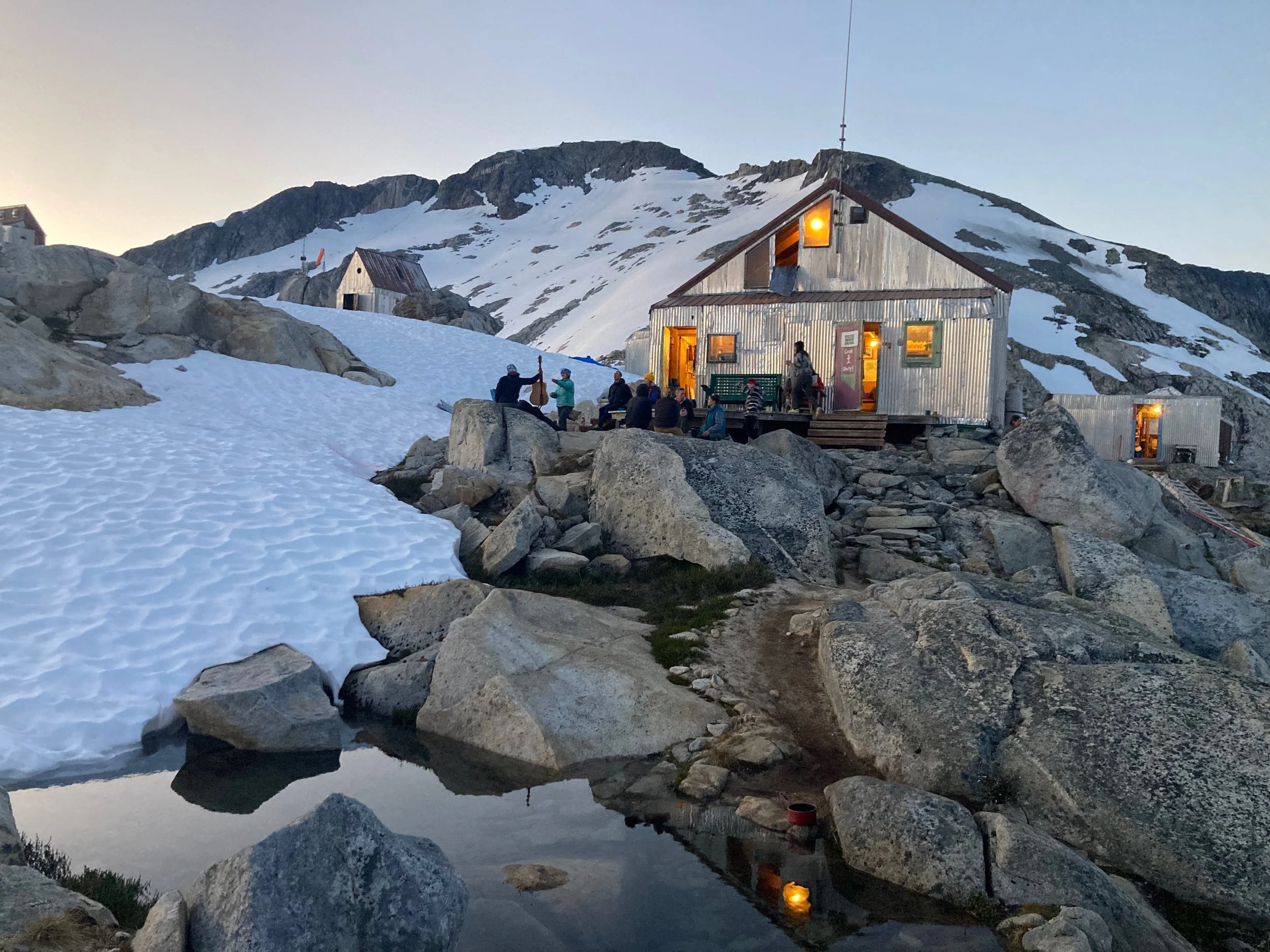
Over the years, participants of JIRP and members of FGER have established over 30 camps on the Juneau Icefield.
Some of these camps are permanent camps that survive each harsh winter and which are maintained by JIRP participants. We are currently working with the US Forest Service to streamline and consolidate our footprint on the Icefield.



